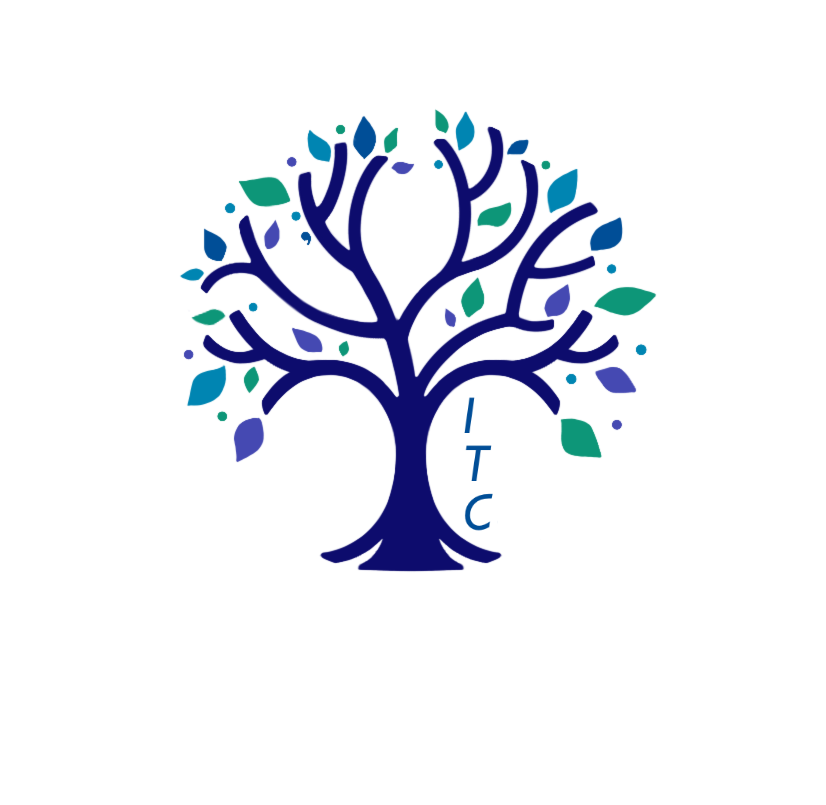
Healing starts with understanding what is behind the conflict
Couples Therapy in California
(San Diego • Los Angeles • Oceanside • Telehealth Across CA)
When Relationships Feel Stuck
Arguments that go in circles. Silence that feels like distance. Families talking past each other instead of with each other. Couples saying, “I love you, but I don’t feel loved.”
When connection breaks down, it can feel lonely—even when you’re not alone. But healing relationships is possible.
Why Couples Come to Therapy
Even the strongest relationships can hit roadblocks. Most couples don’t seek therapy because they don’t love each other—they seek it because love alone isn’t enough to repair old wounds, miscommunication, or ruptures.
Couples therapy may be right for you if you’re:
Stuck in the same arguments again and again
Struggling with trust after betrayal or rupture
Longing for intimacy but feeling emotionally distant
Tired of communication that ends in defensiveness or silence
Navigating life transitions (parenthood, relocation, cultural pressures)
What Couples Can Expect
In therapy, couples learn to:
Identify and break their negative cycle
Express needs with clarity and compassion
Repair after ruptures and rebuild trust
Strengthen intimacy and emotional safety
Build a relationship based on choice, not fear
Whether you’re dating, engaged, partnered, or married—therapy is for couples in all stages who want to move from conflict to connection.
Our therapy fees reflect the experience and specialties of each clinician. A limited number of sliding scale spots are available—please inquire.
Couples Therapy (75–90 min): $175–$300 per session
Our Approach
At ITC, we use an attachment-based, emotionally focused approach to help couples slow down, understand their patterns, and practice new ways of connecting. We focus on:
The dance beneath the conflict: Seeing how each partner’s survival strategies (shutting down, protesting, avoiding, over-pursuing) create cycles of disconnection.
Healing through attachment: Repairing the wounds that make closeness feel unsafe.
Corrective emotional experiences: Practicing vulnerability and being met with care—rewriting the old story of “they’ll leave” into “they’ll lean in.”
They were trapped in a painful cycle…
When Alina and Marcus first reached out for therapy, it was on the heels of yet another painful argument. This time, it had started over something small—a missed phone call, a late dinner—but somehow spiraled into days of silence and resentment. Alina felt invisible. Marcus felt like nothing he did was ever enough. They weren’t strangers to conflict, but lately, everything felt raw. Exhausting. Familiar. They both kept saying, “I love you,” but neither of them felt loved.
When Alina and Marcus first came to therapy, they were sitting at opposite ends of the couch—physically present, emotionally miles apart. Every conversation seemed to spiral into defensiveness or silence. Alina felt abandoned every time Marcus withdrew during a disagreement. Marcus felt overwhelmed and inadequate, unsure how to help without making things worse.
Both still loved each other. But love alone wasn’t enough to bridge the gap that had formed. They were stuck in a loop—one that felt so familiar, yet impossible to break. And they were tired. Tired of fighting. Tired of misunderstanding each other. Tired of feeling like they were on different teams.
They tried to communicate. They read books. They promised to listen better. But somewhere between intention and impact, things kept falling apart. “We’re speaking two different languages,” Alina finally said in one session. And Marcus quietly nodded.
Therapy became the place where things started to shift.
At the Integrative Trauma Collective, couples therapy isn’t about figuring out who’s right or wrong—it’s about understanding the deeper story that lives underneath the conflict. We take an attachment-based, emotion-focused approach to help couples reconnect, repair, and rediscover each other in a way that feels safe and emotionally honest.
Is there hope?
Most couples don’t come to therapy because they don’t love each other. They come because something is getting in the way of expressing that love safely. Often, those barriers are rooted in each partner’s history—childhood dynamics, past relationships, trauma, or attachment wounds. One person may have learned to shut down when things feel overwhelming, while the other learned to fight harder for closeness. These opposing survival strategies create conflict and misunderstanding, leaving both people feeling unseen.
In couples therapy, we bring compassion and curiosity to those patterns—not to assign blame, but to understand what’s happening underneath. From there, we create space for empathy and emotional safety.
Every couple has a unique rhythm, a relational “dance” shaped by each partner’s individual wounds, defenses, and longings. Sometimes, this dance becomes tangled in missteps: criticism meets defensiveness, silence meets protest, distance meets desperation. We help you slow down this dance, examine it together, and learn where you’re stepping on each other’s toes—often unintentionally.
We work to create a corrective emotional experience, where you both can practice responding to each other in new, healing ways. This isn’t about surface-level communication tools. It’s about helping you both feel felt—understood in your pain and empowered in your growth.

We are all wired for connection
In couples therapy, we explore how each partner’s attachment style impacts the relationship: how one person might pull away to protect themselves, while the other reaches out anxiously, fearing abandonment. These responses often come from a place of pain, not malice. When left unexamined, they form reactive loops that leave both partners feeling unmet and alone. In our work together, we hold space for these patterns with compassion—not to pathologize, but to understand.
Through gentle exploration and intentional repair, we help each partner feel safer to turn toward rather than away from one another. Over time, this builds a more secure bond, where vulnerability is met with warmth, and where both of you can begin to trust that closeness is safe again.
Through therapy, we uncover how early attachment patterns, trauma histories, and unspoken fears show up in your relationship. One partner may shut down not because they don’t care, but because they’ve learned that vulnerability isn’t safe. Another might demand closeness not to control, but to soothe a deep fear of abandonment. These patterns can create cycles that are painful—but also changeable.
“At the core of our work is attachment theory—the understanding that we are wired for connection, and that our early relationships shape how we show up in love. ”

Rebuilding connection with time and care
We help couples slow down enough to really hear each other. That might mean learning to speak from a place of emotion rather than blame, or to stay grounded in the face of your partner’s pain. We facilitate corrective emotional experiences—moments when you risk being vulnerable and are met not with rejection, but with care.
These moments are what create lasting change. You begin to rewrite the old story: “When I’m upset, they’ll leave,” becomes “When I’m upset, they’ll lean in.” Little by little, those moments build trust. And when trust grows, so does joy, intimacy, and mutual respect.
Emotionally focused couples therapy helps you identify the emotional themes that drive your conflict. We explore the needs, fears, and unmet longings underneath the surface. In this process, we aim for more than just stopping the fights—we aim to help you feel safer together. More open. More seen.
Together, we practice:
Understanding and changing the negative cycle you’re stuck in
Expressing emotions and needs more clearly and compassionately
Rebuilding safety after betrayals or ruptures
Strengthening intimacy, trust, and emotional connection
Learning how your pasts shape your present—and how to write a new future
We don’t just talk about change. We help you practice it, moment by moment, in the room. Sometimes that means one partner finally saying what they’ve been too afraid to name, and the other finally hearing it with an open heart. That’s where the healing begins.

It is never too late to heal
This might work for you if…
You find yourselves stuck in the same arguments again and again.
You want to deepen intimacy, rebuild trust, or prepare for the next chapter.
You’ve experienced a rupture—infidelity, loss, betrayal—and want to repair.
You’re navigating a transition—parenthood, relocation, cultural pressures—and want support.
You’ve experienced a rupture—infidelity, loss, betrayal—and want to repair.
Now is the time.
Our 4 Branches of Care
At ITC, we know healing isn’t one-size-fits-all.
We offer four interconnected pathways, so you can find the support that meets you where you are.
-

Traditional Therapy (Telehealth & In Person for CA Residents)
Compassionate, somatically grounded therapy for individuals, couples, and families. Our clinicians specialize in trauma recovery, sexual trauma, relational healing, and intergenerational repair.
Individual • Couples • Family • Integrative EMDR • Somatic Experiencing
-

Coaching & Wellness (Worldwide)
Trauma-informed yoga, nervous system education, breathwork, and somatic coaching. These offerings create accessible, non-clinical spaces for regulation, embodiment, and spiritual connection.
Somatic Coaching • Yoga & Breathwork • Psychedelic Integration
-

Groups, Workshops & Retreats (Scheduled)
Practical and engaging trainings for schools, parents, and community groups. From nervous system education to burnout prevention, we equip communities with tools that support both children and adults.
-

Corporate Development & Consultation
Leadership programs and organizational wellness consultations. We help businesses and teams address burnout, strengthen communication, and create cultures where both productivity and people can thrive.
If You’re in Crisis
If you’re in immediate crisis, please call or text 988 (Suicide & Crisis Lifeline) or go to your nearest emergency room.




